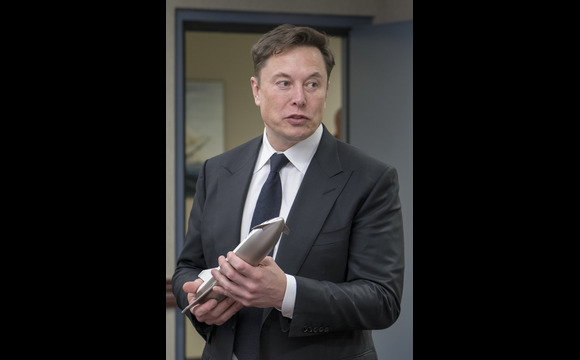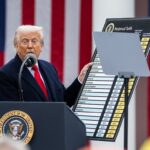Tech billionaire Elon Musk has announced the launch of a new political party, just weeks after a dramatic and public split with US President Donald Trump.
Posting on his social media platform X, Musk revealed the formation of the America Party, positioning it as a direct challenge to the longstanding dominance of the Republican and Democratic parties in US politics.
Despite the announcement, it remains unclear whether the America Party has been formally registered with the Federal Election Commission (FEC), which had not published any related filings as of Saturday. Musk, who was born outside of the United States and is therefore constitutionally barred from seeking the presidency himself, has not named a leader for the new party.
Musk first floated the idea of launching a political party during his escalating public feud with Trump earlier this year. That dispute led to Musk’s abrupt resignation from his role in the Trump administration and a fierce exchange of criticisms between the former allies. During the fallout, Musk conducted a poll on X, asking users if a new political party was needed in the United States.
Referencing the poll in his Saturday post, Musk wrote:
“By a factor of 2 to 1, you want a new political party and you shall have it!
When it comes to bankrupting our country with waste & graft, we live in a one-party system, not a democracy.
Today, the America Party is formed to give you back your freedom.”
While the US political system has seen third-party and independent candidates attempt to break the two-party stronghold, such efforts have rarely gained substantial traction at the national level. In last year’s presidential election, candidates from parties like the Libertarian Party, Green Party, and People’s Party failed to significantly challenge Trump or Democratic contender Kamala Harris.
Until recently, Musk had been one of Trump’s most prominent backers. He was often seen at Trump’s campaign rallies — at times even dancing beside him — and famously brought his four-year-old son to meet the president in the Oval Office. Musk was also a key financial supporter, reportedly spending $250 million (£187 million) to support Trump’s return to office.
Following the election, Trump appointed Musk to lead the Department of Government Efficiency (Doge), a new body tasked with finding major spending cuts in the federal budget.
However, their relationship soured in May, when Musk resigned from Doge and publicly criticized Trump’s sweeping tax and spending proposal. The legislation — dubbed Trump’s “big, beautiful bill” — was narrowly passed by Congress and signed into law earlier this week.
The law features extensive tax cuts and massive federal spending increases, which the Congressional Budget Office estimates will add over $3 trillion to the US national deficit over the next ten years. For Musk, a major concern appears to be the bill’s lack of support for green initiatives, such as subsidies for electric vehicles like those produced by Tesla.
In a post on Truth Social earlier this week, Trump took a jab at Musk, writing:
“Elon may get more subsidy than any human being in history, by far. Without subsidies, Elon would probably have to close up shop and head back home to South Africa.”
Trump also suggested that Doge would investigate government subsidies benefiting Musk’s various companies. In addition to Tesla, Musk owns SpaceX, which launches rockets on behalf of the US government, and Starlink, a satellite internet provider used by US and European defense agencies.
With the formation of the America Party, Musk appears to be taking a bold step into the political arena, aiming to reshape the national conversation around government spending, political accountability, and the role of private enterprise in shaping public policy. However, with no official registration yet filed and no leader announced, it remains to be seen whether the party will become a serious force or another fleeting experiment in American third-party politics.






